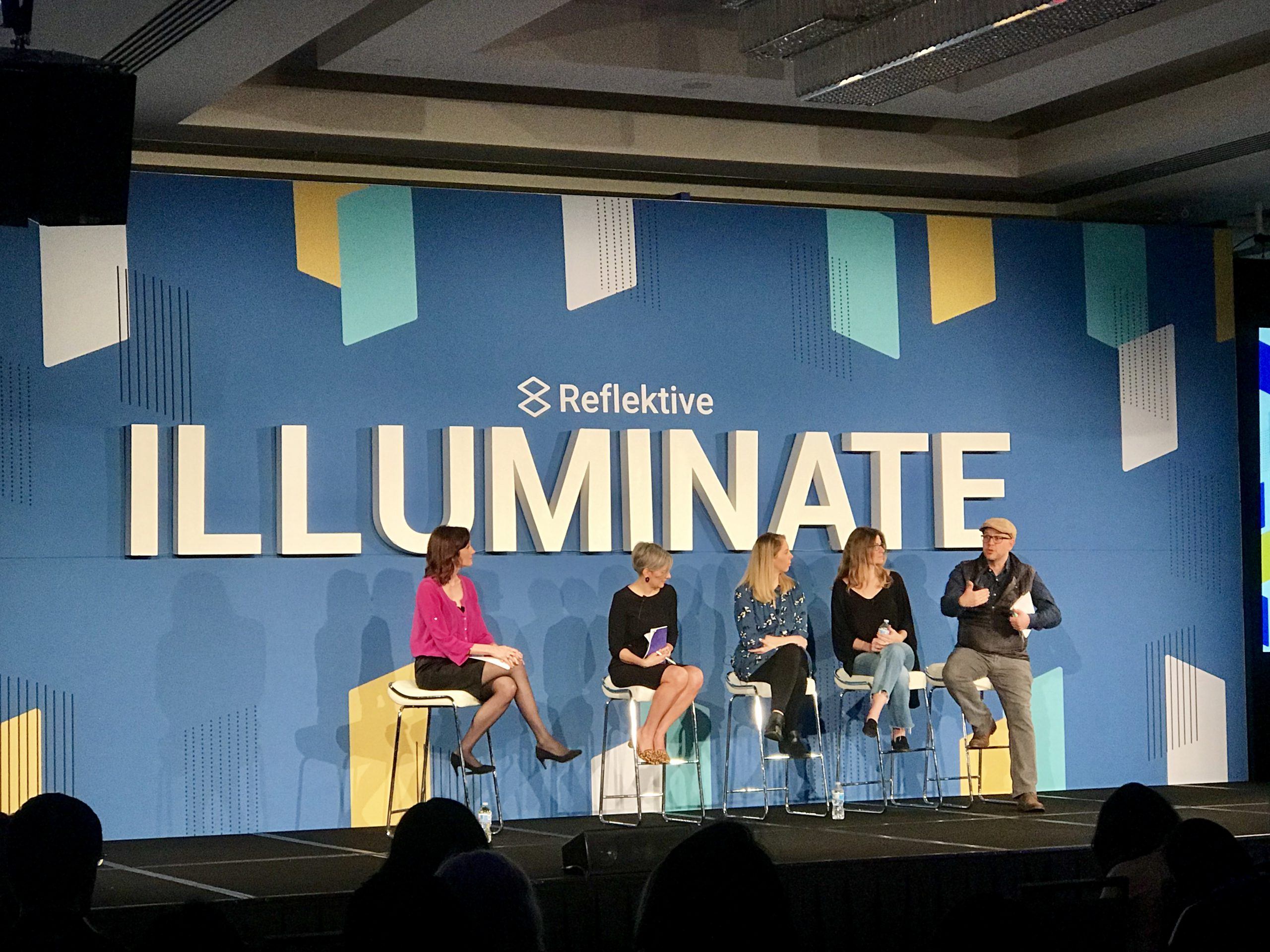Data shows that employees seek coaching as the primary way to advance their careers, but creating a culture in which feedback is effectively given and received is easier said than done.
Andrea Robb from Airbnb, Jacklyn Felix from Dollar Shave Club, Lindsey Ducroz from Frog Design, and Manny Hernandez from Livongo spoke on a panel, “What a Feedback Culture Really Looks” at Reflektive’s Illuminate, the conference for people leaders, by people leaders. Rachel Ernst, vice president of employee success at Reflektive, facilitated and kicked off the discussion by asking panelists how they foster a culture that encourages feedback in their respective organizations.
All panelists agreed that a sense of psychological safety — in this case, meaning one feels comfortable speaking out without fear of repercussion — is critical to employees effectively giving and receiving feedback. It’s also a commonality of high performing teams.
Ducroz described Frog Design’s practices to foster psychological safety, including celebrating individuals for who they are, not what’s on their resume. Frog does this by creating opportunities to form micro connections with colleagues, from assigning a buddy to new hires and setting aside time for them to introduce their passions and hobbies to the larger team.
“We understand that people are much more than their LinkedIn profiles,” Ducroz said. “We strive to foster a sense of belonging in the workplace where people feel that their values and opinions are understood and accepted.
Robb highlighted how Airbnb fosters a feedback culture, featuring training around how to structure effective feedback dialogue, have a productive confrontation and understand when it’s necessary.
Additional highlights from the panel include:
- Provide opportunities for bias busters; there are many biases around receiving feedback that are crucial to understand and plan for.
- Fairness is the foundation of culture feedback; create an equal playing field by offering tools and resources that ensure everyone is speaking the same feedback language.
- Peer-to-peer feedback is just as important as manager-to-employee feedback.
- All feedback should be constructive and specific.
- Recognitions are an important part of feedback and help to reinforce this culture.
See more from Illuminate here.
